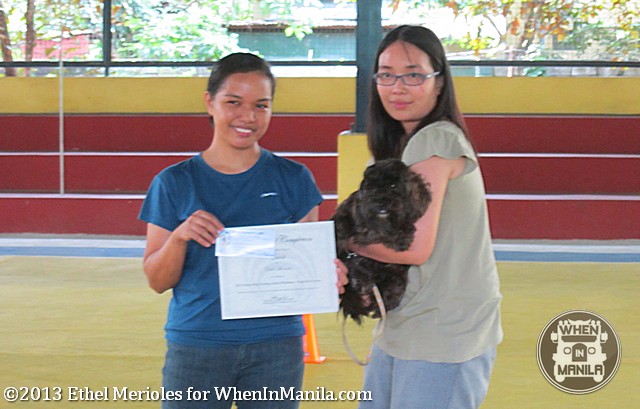
Title: Puppy School Philippines: A Comprehensive Guide to Training Your Young Canine Companion
Introduction:
Bringing home a new puppy is an exhilarating experience, filled with excitement and anticipation. However, along with the joy of welcoming a new furry friend into your home comes the responsibility of ensuring they grow into well-behaved and obedient companions. In the Philippines, puppy school offers a structured approach to training, providing young dogs with the essential skills they need to thrive. In this comprehensive guide, we will explore the benefits of puppy school, how to find the right one for your pup, essential training techniques, and tips for continued success beyond graduation.
Understanding the Benefits of Puppy School:
Puppy school is more than just a place for puppies to learn basic commands; it is a foundation for a lifetime of positive behaviors and interactions. Research has shown that puppies who undergo formal training are more likely to exhibit desirable behaviors and have stronger bonds with their owners. By enrolling your young canine companion in puppy school, you are investing in their future well-being and setting them up for success in the years to come.
Finding the Right Puppy School in the Philippines:
Choosing the right puppy school is essential for your pup’s development and training success. Factors such as location, facilities, training methods, and trainers’ qualifications should all be taken into consideration. For example, a reputable puppy school will prioritize positive reinforcement techniques and provide a safe and supportive environment for both puppies and owners.
Basic Obedience Training:
Basic obedience training forms the cornerstone of puppy school curriculum. Teaching essential commands such as sit, stay, come, and heel not only improves your puppy’s behavior but also enhances communication between you and your furry friend. Consistent and patient training, both at puppy school and at home, is key to mastering these commands and building a strong foundation for further training.
Socialization Skills:
Socialization is crucial for young dogs, helping them develop confidence and learn to interact positively with people and other dogs. Puppy school provides valuable opportunities for socialization in a controlled environment, exposing puppies to a variety of stimuli and experiences. By encouraging positive interactions and rewarding calm behavior, you can help your puppy grow into a well-adjusted and sociable companion.
Crate Training and Potty Training:
Crate training and potty training are essential components of puppy school, establishing good habits and routines early on. A properly crate-trained puppy feels secure and comfortable in their crate, which can be used for sleeping, traveling, or times when they need to be confined. Similarly, effective potty training techniques teach puppies where and when it’s appropriate to eliminate, preventing accidents and promoting cleanliness in the home.
Addressing Puppy Behavior Problems:
It’s not uncommon for puppies to exhibit behavior problems such as chewing, biting, or jumping. However, these behaviors can be addressed through positive reinforcement-based techniques taught at puppy school. By redirecting unwanted behaviors and consistently reinforcing desired behaviors, you can help shape your puppy’s behavior in a positive direction.
Positive Reinforcement Training:
Positive reinforcement training is a highly effective approach to teaching desired behaviors in puppies. By rewarding good behavior with treats, praise, or play, you’re reinforcing the behaviors you want to see more of, strengthening the bond between you and your puppy in the process. Positive reinforcement creates a positive association with training, making learning enjoyable and rewarding for your furry friend.
Understanding Puppy Development Stages:
Puppies go through various developmental stages, each with its own unique challenges and opportunities for learning. Understanding these stages allows you to tailor your training approach to meet your puppy’s specific needs and capabilities. Whether your puppy is in the socialization period, the fear period, or adolescence, adapting your training methods accordingly can help maximize their learning potential and set them up for success.
Enrichment Activities:
In addition to formal training sessions, incorporating enrichment activities into your puppy’s routine is essential for keeping them mentally and physically stimulated. Enrichment activities can include puzzle toys, interactive games, or even outdoor adventures that engage your puppy’s senses and provide opportunities for exploration and learning. These activities not only prevent boredom but also promote a happy and well-balanced puppy.
Graduating from Puppy School:
As your puppy completes their training program and graduates from puppy school, it’s important to continue their training and development at home. Consistent practice, ongoing socialization, and continued reinforcement of learned behaviors are essential for maintaining the progress made during puppy school. Consider enrolling in advanced training classes or participating in dog sports to continue challenging and stimulating your growing companion.
Conclusion:
In conclusion, puppy school in the Philippines offers a comprehensive approach to training your young canine companion, setting the foundation for a lifetime of positive behaviors and interactions. By enrolling your puppy in a structured program, you’re investing in their future well-being and ensuring they grow into happy and well-adjusted companions. Remember to be patient, consistent, and positive in your training efforts, and enjoy the journey of watching your puppy learn and grow. With dedication and love, you’ll build a strong bond that lasts a lifetime.
No Comments Yet